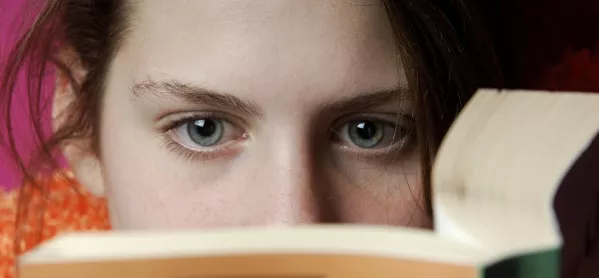Ask any expert in children’s literacy how to get children to read and, inevitably, they’ll talk about reading for pleasure. “Let the children choose their own reading material,” they’ll say, “because reading is reading, whether it’s the complete works of Charles Dickens or the Argos catalogue.”
This was the approach I adopted when working on a National Literacy Trust project six years ago, and it has since been my mantra in the primary-school library where I now work.
Except … it isn’t always. For the past five years, I’ve equally loved and loathed what is happening in my school library. I love that almost all our children are enthusiastic readers. But I loathe that some of them borrow the same books ad nauseam, without looking at or touching the stunning new books I’ve displayed.
Books gone ‘on holiday’
It was this frustration that made me send all my popular books “on holiday” earlier this year. The Walliams, Kinneys, Jacqueline Wilsons, animal stories, funny stories, and diaries went for a well-earned rest to let the other fantastic books take the strain. I hid the old favourites away and waited excitedly for the response.
There was uproar.
Where were the books? Why did they have to go away? The children became bullish and simply borrowed fewer books. At best, I converted a trio of Pony Pals fans into lovers of Pippi Longstocking, Laura Ingalls Wilder and Sylvia Bishop. This was a success of sorts but not on the grand scale I had hoped. Eventually, I returned the popular books to the shelves and they’ve been heavily borrowed ever since.
‘Celebrity authors’
There is a bigger issue at play here, too. The rise of the celebrity book, particularly, means that authors who might have been more popular are now being overlooked. Following in David Walliams’ hugely successful footsteps, publishers are producing stories penned by the already famous, from Chris Hoy’s Flying Fergus stories to Alesha Dixon’s Lightning Girl.
Ironically, this has inadvertently created a “them and us” mood in children’s literature. While celebrities are heavily promoted, often at the expense of their lesser-known colleagues, some school librarians quietly shelve the chart-toppers to champion authors who they think are worthy of more exposure.
‘Dichotomy of children’s literature’
Therefore, even though we are in a golden age of children’s literature, it strikes me that this world is something of a dichotomy. On the one hand, we want children to read, and that means encouraging them to read for pleasure. On the other hand, the books they often find most pleasurable are not the ones we think are worthy of their attention.
From my experience in my library, I learned that children will read what they want or not read at all, no matter how much I push my own agenda onto them. Fair enough. What would I do if someone sent my beloved mysteries and ghost stories on “holiday” and replaced them with books on physics and mechanics? I’d stop reading, that’s what.
My literary hero is French writer and former reluctant reader Daniel Pennac, who wrote the now-famous The Rights of the Reader. One of these rights is “The Right to Read Anything”, while another is “The Right Not to Read”. As I reflected on my own experiment, I realised that I should use the favourite books to start conversations about similar ones. For example, my Percy Jackson fans are now reading Jonathan Stroud’s Bartimaeus and Lockwood series, and we’re having fantastic conversations about them. My Jacqueline Wilson groupies are devouring Robin Stevens’ Murder Most Unladylike series, loving the feisty independence of Hazel and Daisy.
Rather than ban bestselling books, use them as a base to introduce the ones you’re really excited about - and watch as the children get excited too.
Sam Pope is a primary school librarian and writer in Oxford

